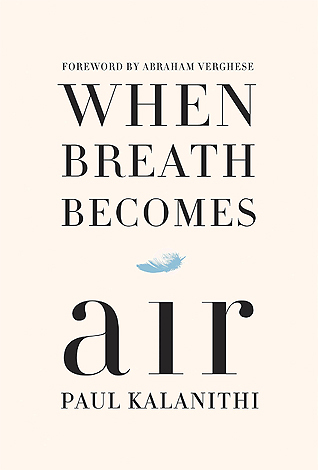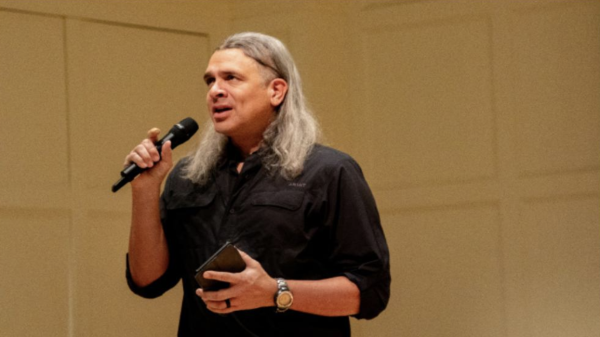Exploring the intricacies of “When Breath Becomes Air”
Paul Kalanihthi shares his thought-provoking journey navigating a terminal illness

Kalanithi navigates the philosophical dilemmas of the medical profession.
October 28, 2021
In the novel “When Breath Becomes Air”, author and neurosurgeon Paul Kalanithi weaves together a beautiful and touching story. I would recommend “When Breath Becomes Air” to anyone looking for a short read or thinking of going into the medical field.
Even though the reader learns about Kalanithi’s inevitable death in the foreword, following his journey as a bright-eyed medical student and his eventual battle with the same cancer that he worked to cure was still powerful and inspiring.
Kalanithi’s education was enshrouded in medicine. Yet, he was able to take a philosophical and almost poetic look at his own disease as he grappled with his mortality. Facing death, he wrote honestly, “I plod, I ponder. Some days, I simply persist.” At the prime age of 37, Kalanithi died just as he was finishing his residency and, more importantly, right before his daughter’s first birthday. Although this novel ends with his death, at its core it highlights and celebrates Kalanithi’s life.
Paul Kalanithi expertly recounts his experience, revealing a different side to the medical profession that many people would not otherwise be able to see. I enjoyed how he delved into different bioethical issues, seeing as how he struggled with how to tell his patients about life-threatening prognostics.
He also had decided what kind of life was worth living. Kalanithi wrestled with his own guilt when he had saved a life, only for that individual to live in a relatively vegetative state.
I think Kalanithi was able to open my eyes to many of the moral dilemmas that plague the minds of physicians that patients often fail to see. As such, the transition that Kalanithi was forced to make from successful neurosurgeon to patient was heartbreaking.
Just as he was reaching a peak in his career, he was struck by the same cancer that he had, time and time again, seen in his own patients. He knew exactly what his scans meant, and knew he was facing death just like so many of his own patients were.
My biggest caveat with this book is that Kalanithi, at times, seemed to use philosophical language excessively. His language was oftentimes lyrical but sometimes teetered on the edge of redundancy. However, his willingness to delve deep into his own humanity led to thought-provoking quotes like, “Death comes for all of us. For us, for our patients: it is our fate as living, breathing, metabolizing organisms. Most lives are lived with passivity toward death — it’s something that happens to you and those around you.”
“Our patients’ lives and identities may be in our hands, yet death always wins.” He continues: “Even if you are perfect, the world isn’t. The secret is to know that the deck is stacked, that you will lose, that your hands or judgment will slip, and yet still struggle to win for your patients. You can’t ever reach perfection, but you can believe in an asymptote toward which you are ceaselessly striving.”
I think Kalanithi’s life reminds us of the importance of living in the moment and understanding that suffering is just another aspect of life. He emphasized striving until the last breath, and I think he did just that.





















